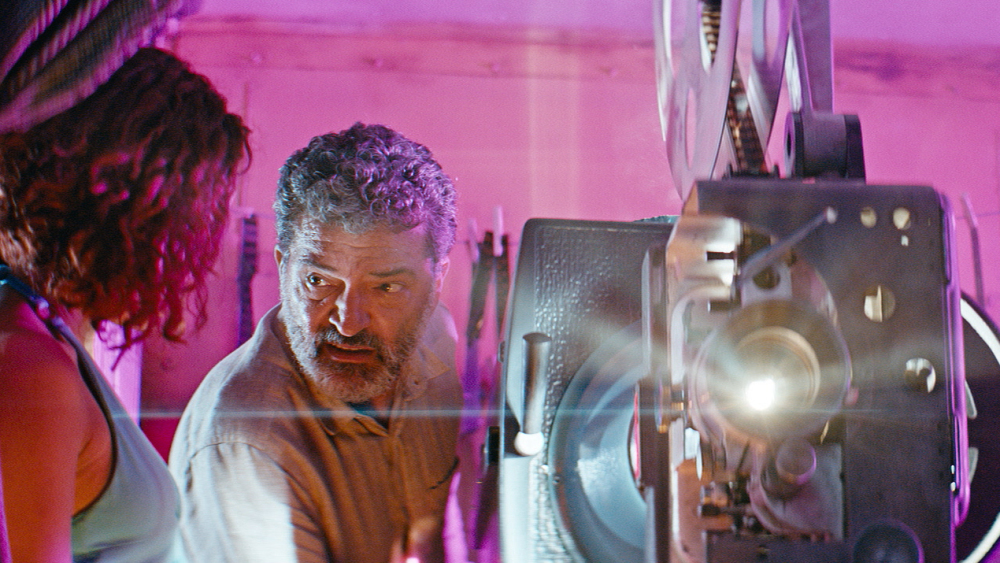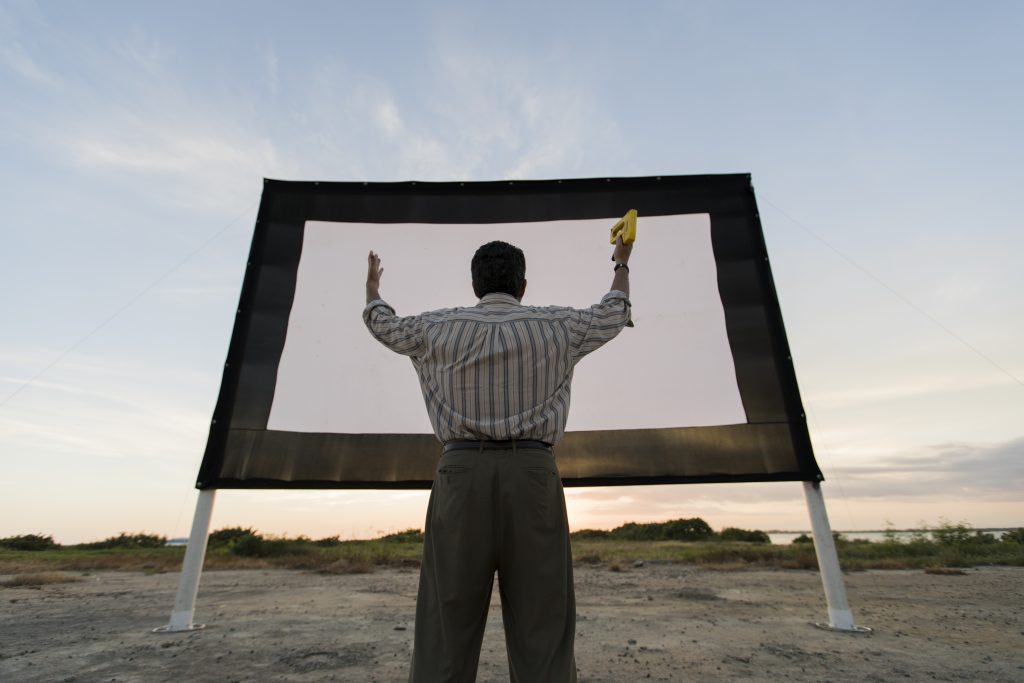When Dominican filmmaker José Maria Cabral first set out to make movies, there was no government support for cinema creation in his country. The most financially viable path to enter the nascent industry was to direct comedies targeting hometown audiences. Major international exposure only came after his 2017 prison-set drama Carpinteros (Woodpeckers) premiered at Sundance.
Still, he made a name for himself at home, first with well-received mainstream titles like Detective Willy, a humorous adventure about a policeman in search of a valuable object. Suddenly, due to the success of that film, people started calling Cabral to inquire about the possibility of taking it beyond traditional movie theaters.
The individuals who approached Cabral made their living traveling to underserved small towns across the island, where they organized outdoor screenings for communities who wouldn’t otherwise have access to the moviegoing experience.
Rather than just handing off a copy of his movie, Cabral decided to join these exhibitors in their travels. While most used DVDs for their screenings, he found one man who had repaired a 35 mm projector and transformed a truck into a mobile projection booth. Cabral was fascinated by the way grassroots publicity worked for these impromptu showings. “They would go around the block with the loud speaker promoting them,” he said.

From that encounter with his countrymen’s ingenuity, his latest drama El Proyeccionista (The Projectionist), which had its World Premiere at the Miami International Film Festival, was born. With his personal experience serving as the story’s foundation, Cabral knew he needed to give his protagonist a conflict to overcome. “He had to have his own journey independent of his journeys with cinema,” he explained. For that, Cabral laced his road trip story with references to Greek mythology that he adapted to the specific Caribbean setting.
His projectionist, Eliseo (played by film director and actor Félix Germán), refuses to upgrade his operation to digital technology. A lonely man, he only finds joy in watching old reels of film left behind by his father and which depict an enigmatic woman. “Although what he does as a job is project movies for people in remote communities, he is also projecting things within himself.” His life journey is connected to the switch from celluloid to digital. “He doesn’t want to change and he is holding on to the past.”
Cabral didn’t want Eliseo’s “Guagua del Cine,” as the bus he uses to screen movies is called, to serve as just a prop. His goal was to repurpose a truck that could actually house a functional projector. The production found parts from multiple projectors that movie theaters had discarded and built a Frankenstein device from them. Then they cut a hole in the side of their bus. All the scenes where Eliseo is projecting a movie for an audience are actually being projected live. “Extras were able to watch a movie while I rehearsed with the principal cast,” he added.

To shoot The Projectionist, Cabral visited the towns of Dajabón, San Pedro de Macorís, Monte Cristi, and Jarbacoa. Everywhere they went they had an expert technician knowledgeable in projectors with them. “Traveling through the island on a guagua that’s moving all the time, there were always problems and things would breakdown. “
One of Cabral’s favorite scenes took place on the border between the Dominican Republic and Haiti, more specifically on a bridge above the Masacre River, known as the entry point for migrants. Late in the film, Ruby (first-time film actress Cindy Galán), Eliseo’s unwanted assistant, organizes a projection so that people on both sides can be entertained.
Cabral knows this moment might be considered controversial when the movie premieres in the Dominican Republic, because his nation’s relationship with Haiti is politically complicated. “I wanted to project above that river, so that for that moment it wasn’t about crossing physically, but crossing another way, through art,” he said. “Hopefully what can connect us is cinema and culture, they are a language that surpasses spoken ones.”
The Projectionist will continue its festival run during the upcoming months and opens in theaters in the Dominican Republic on June 27. Following its theatrical debut, Cabral will take the movie to the places where it was filmed in the tradition of the projectionists who inspired him.







